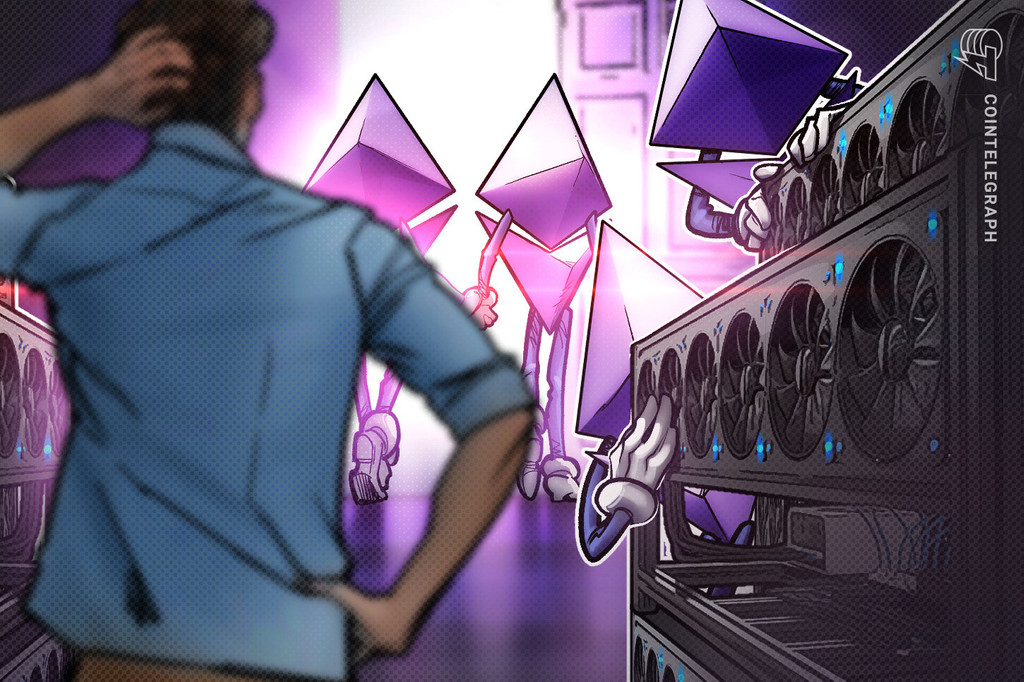The Merge forced miners to shift to alternative GPU mineable cryptocurrencies, a newly forked version or dump or sell their equipment at a low price.
Shift to alternative GPU mineable cryptocurrencies
One of the direct effects of the Merge includes miners turning to the Ethereum fork, Ethereum Classic (ETC), to keep utilizing their equipment. For instance, the blockchain fork’s hash rate increased the day after the Merge. The hash rate describes the computation power needed to approve a transaction on the blockchain through a proof-of-work consensus mechanism.
As Ethereum Classic blockchain still practices the PoW method for mining, Canada-based Hive blockchain (crypto mining giant) disclosed its plans to mine other proof-of-work cryptocurrencies like ETC, Dogecoin (DOGE) and Litecoin (LTC), among others. However, shifting to a PoW blockchain may undermine the environmental benefits that the PoS version offers.
Ethereum miners can switch to a newly forked version
A Chinese miner who resists Ethereum Network’s shift to proof-of-stake forked Ethereum to preserve the proof-of-work consensus method. The newly forked version is called the EthereumPOW (ETHW), which hopes to accommodate GPU miners in the future.
The trade of tokens reflecting a proof-of-work fork of Ethereum is supported by cryptocurrency exchanges like Poloniex and BitMEX as well as the Tron blockchain.
Some of the GPU miners may quit the game
Returning to past revenue figures that were provided on Ethereum is difficult. Those chances are low with stablecoin chains or any other PoW blockchain. Overflow of hash rate to alternative GPU mineable coins is also a threat to the mining venture.
It is challenging to earn previous rewards that were offered on Ethereum, due to which miners started shifting to alternative GPU-mineable coins. However, the increased hash rate means a hike in mining difficulty, causing miners to get rid of GPU miners.
Hive blockchain agrees that only miners with efficient equipment will succeed in the long run for this reason. As a result, many miners may sell their GPUs if the difficulty of alternate chains keeps increasing.
On the other hand, the selling may not occur since a dumping effect will result from an increasing supply of GPU capability compared to a decrease in demand. Therefore, the likely outcomes of such a scenario can be a vast majority of miners either dumping or selling their equipment at low prices. However, as crypto mining places a lot of strain on the GPU hardware, gamers and even film editors might not be optimistic about buying the machines.
